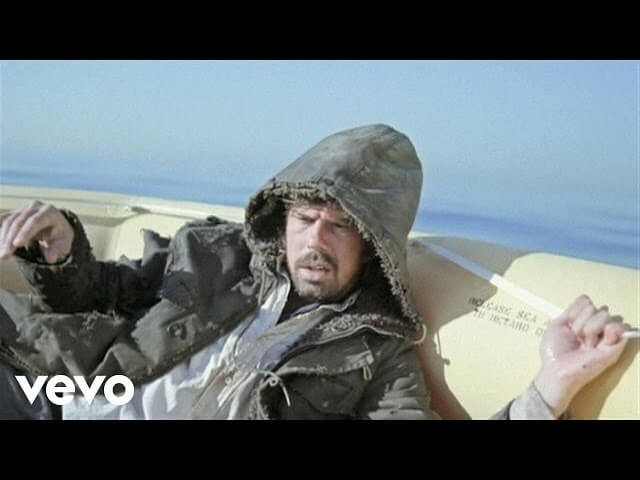Making an honest man out of the Liars’ Angus Andrew

If Liars are to be believed, then nothing written about them is ever the complete truth—even what’s in their own press releases. It’s not that they—the trio of Angus Andrew, Aaron Hemphill, and Julian Gross—are out to intentionally mislead, but rather it’s that their intentions are often misconstrued. As if this were art class, and every day a critique day, Liars are constantly made to stand next to their work and be asked by everyone, “What does this mean?” The answers can seem abstract (“This album’s about witches!”), but that’s just the surface. In fact, to think of Liars as a concept band would be all wrong—their albums aren’t conceptual, they’re reactionary. Their 2001 debut, They Threw Us All In A Trench And Stuck A Monument On Top, was a burst of hyperactive dance-punk; 2004’s They Were Wrong, So We Drowned, was decidedly not, and instead delved into moody atmospherics. The next release, 2006’s Drum’s Not Dead, was hugely thematic; the following year’s self-titled effort was not—it was purposely written without any unifying narrative. This year’s Sisterworld seems a culmination of all of that. It’s art-rock experimentation wrapped in insinuation and metaphor, largely influenced by the band’s collective relocation to grimy, shiny Los Angeles (the first time in years that all three members have resided in the same city). Andrew, on the eve of the band’s current tour—which makes a stop in Denver this Saturday at the Bluebird Theater—let The A.V. Club in on the biggest truth about the Liars: That with everything they do, they’re just trying to be honest.
The A.V. Club: It seems like Liars are always being asked to explain the meaning behind the albums, rather than the creation of them or even what they sound like.
Angus Andrew: There are worse things a band can be known for than being overtly conceptual. If that’s the burden we have to bear for making the kind of records that we do, then that’s generally okay with me. Definitely with the record before this one, which was the self-titled record, it was really a reaction to what you were talking about. We tried to strip away any kind of meaning from the record so that we wouldn’t have to discuss our influences, etc.
But in doing that, we learned that actually what we liked about making records was giving them this sort of life of their own. And so with Sisterworld, we kind of went back with that, with the understanding that, yeah, we’re probably going to end up talking to people more about the theory behind the record than the actual music in it. It gets frustrating sometimes, but like I said, if that’s the one thing we have to deal with, then that’s okay.
AVC: Knowing that you’ll be asked about it, do you guys work it out beforehand as a group, like “Okay, this is what we’re going to tell people the album is about.”
AA: [Laughs.] That’s not too far from the truth, honestly. We really have to get on the same page in the beginning, and more and more we’ve learned it’s important to be cautious about how much you reveal. Otherwise, you’ll be caught in a whirlwind.
It’s a really tricky time [right after a record is finished]. The label asks you to write something to explain it, and that’s always a tricky thing. With any sort of artwork, it takes a while for things to really digest. [But] you’re sort of forced to put out a statement that says something, and then the label also gets involved and then they write something. And in the end, you edit things down to something you’re kind of happy with.
The press release we put out for Sisterworld was a real problem, because there was a line in there—it was a barely written line—that said something about us making this record “devoid of influence.” The intention in that was that we were trying project an idea of a place called Sisterworld that was devoid of influence. But we ended up being asked by a lot of people, “How can you make a record devoid of influence?” [Laughs.] And, actually, it was quite the opposite. We’re very influenced by L.A. and the media and everything here.
 Keep scrolling for more great stories.
Keep scrolling for more great stories.
